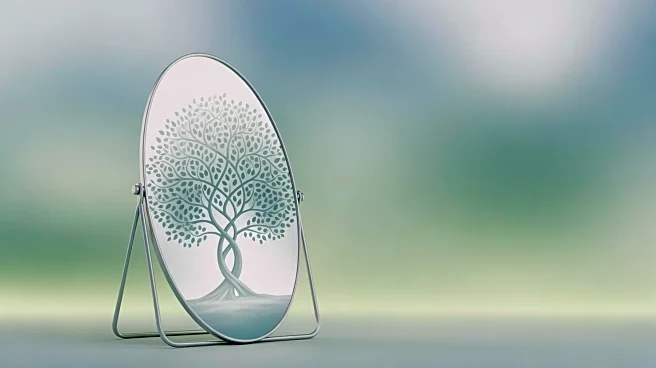Rapid Read • 9 min read
The U.S. Department of Agriculture has approved Oklahoma's request to implement restrictions on the types of foods that can be purchased using the Supplemental Nutrition Assistance Program (SNAP). This decision is part of the Make Oklahoma Healthy Again Campaign, spearheaded by Governor Kevin Stitt. The waiver will exclude certain junk foods, such as soft drinks and candy, from SNAP purchases, affecting nearly 700,000 participants in Oklahoma. U.S. Agriculture Secretary Brooke Rollins and U.S. Health Secretary Robert F. Kennedy Jr. announced the approval, which is set to take effect next year. The initiative aims to promote healthier eating habits by preventing taxpayer-funded money from being spent on unhealthy foods. However, the move has faced criticism from anti-hunger advocates who argue that it unfairly targets low-income families and complicates the definitions of restricted items.
AD
The approval of Oklahoma's SNAP restriction waiver is significant as it represents a shift in public policy towards promoting healthier eating habits among low-income families. By excluding junk foods from SNAP purchases, the state aims to improve public health outcomes and reduce healthcare costs associated with diet-related illnesses. However, the decision has sparked debate over its fairness and effectiveness, with critics arguing that it imposes undue restrictions on SNAP recipients. The waiver could set a precedent for other states considering similar measures, potentially reshaping the landscape of food assistance programs across the U.S. The broader implications of this policy change may influence public health strategies and the allocation of resources in addressing nutritional challenges.
As Oklahoma prepares to implement the SNAP restriction waiver, state officials and food advocates are assessing the impact of the new definitions and restrictions. The GOP's Big Beautiful Bill Act, which will require states to pay more for SNAP, is also expected to affect Oklahoma's food assistance programs, with estimated costs of $300 million annually. The Oklahoma Department of Human Services is working to ensure that all stakeholders are informed throughout the transition. Further details on the implementation and its effects on SNAP services will be provided in the coming weeks. The ongoing dialogue between state officials, advocates, and communities will be crucial in navigating the changes and addressing concerns raised by critics.
The decision to restrict SNAP purchases in Oklahoma raises ethical and social questions about the role of government in influencing dietary choices. While the initiative aims to promote healthier eating, it also highlights the complexities of balancing public health goals with individual freedoms and economic realities. The waiver's impact on low-income families, who may face additional barriers in accessing affordable and nutritious food, underscores the need for comprehensive strategies that address the root causes of food insecurity. The broader cultural implications of this policy change may influence public perceptions of food assistance programs and the responsibilities of government in promoting health equity.
AD
More Stories You Might Enjoy











